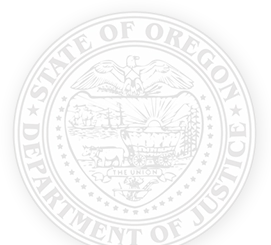Janssen Pharmaceuticals has agreed to pay $181 million to settle claims brought against it by Oregon Attorney General Ellen F. Rosenblum and 36 other Attorneys General alleging that the drug company used unfair and deceptive practices in marketing Risperdal and three related anti-psychotic drugs.
Oregon will receive more than $4.2 million in the case. Janssen is a subsidiary of Johnson & Johnson.
“This is our most important case settlement yet involving “Big Pharma,” Rosenblum said. “Some of Oregon’s most vulnerable citizens will be the beneficiaries. I am proud of the major contribution of the Oregon Department of Justice to this result — particularly the efforts of Assistant Attorney General David Hart.”
Hart, assistant attorney-in-charge of the Oregon Department of Justice financial fraud/consumer protection section, handled the case for the state.
The complaint, filed today in Multnomah County Circuit Court follows a four-year investigation. It alleges that Janssen marketed Risperdal, Risperdal Consta, Risperdal M-Tab and Invega for unapproved or off-label uses.
Federal Law prohibits pharmaceutical manufacturers from promoting their products for off-label uses. The complaint alleges that Janssen promoted Risperdal for off-label uses to both geriatric and pediatric populations, targeting patients with Alzheimer’s disease, dementia, depression, and anxiety, when these uses were not FDA-approved and for which Janssen had not established that Risperdal was safe and effective.
It also alleges that Janssen paid doctors to learn about Risperdal’s unapproved uses and gave lucrative consulting contracts to those who promoted and prescribed the drug.
In addition, the complaint alleges that when marketing Risperdal, Janssen misrepresented the risk of diabetes and weight gain associated with the drug and that Jansen marketed Risperdal in nursing homes despite the fact that there are other serious risks associated with using atypical antipsychotic drugs with this population.
As part of the settlement, Janssen agreed to change not only how it promotes and markets its atypical antipsychotics but also agreed to refrain from any false, misleading or deceptive promotion of the drugs. The company also agreed to disclose the specific health risks of the drugs on its product labels and to present balanced information about the drugs’ effectiveness and risks in its promotional materials.
The Attorneys General of the following states and the District of Columbia participated in the settlement: Arizona, Alabama, Colorado, Connecticut, Delaware, Florida, Hawaii, Idaho, Illinois, Indiana, Iowa, Kansas, Maine, Maryland, Michigan, Minnesota, Missouri, Nebraska, Nevada, New Hampshire, New Jersey, New York, North Carolina, North Dakota, Ohio, Oklahoma, Oregon, Pennsylvania, Rhode Island, South Dakota, Tennessee, Texas, Vermont, Washington, Wisconsin and Wyoming.
Contact:
Oregon Department of Justice: dojmedia@doj.state.or.us, 503-378-6002
